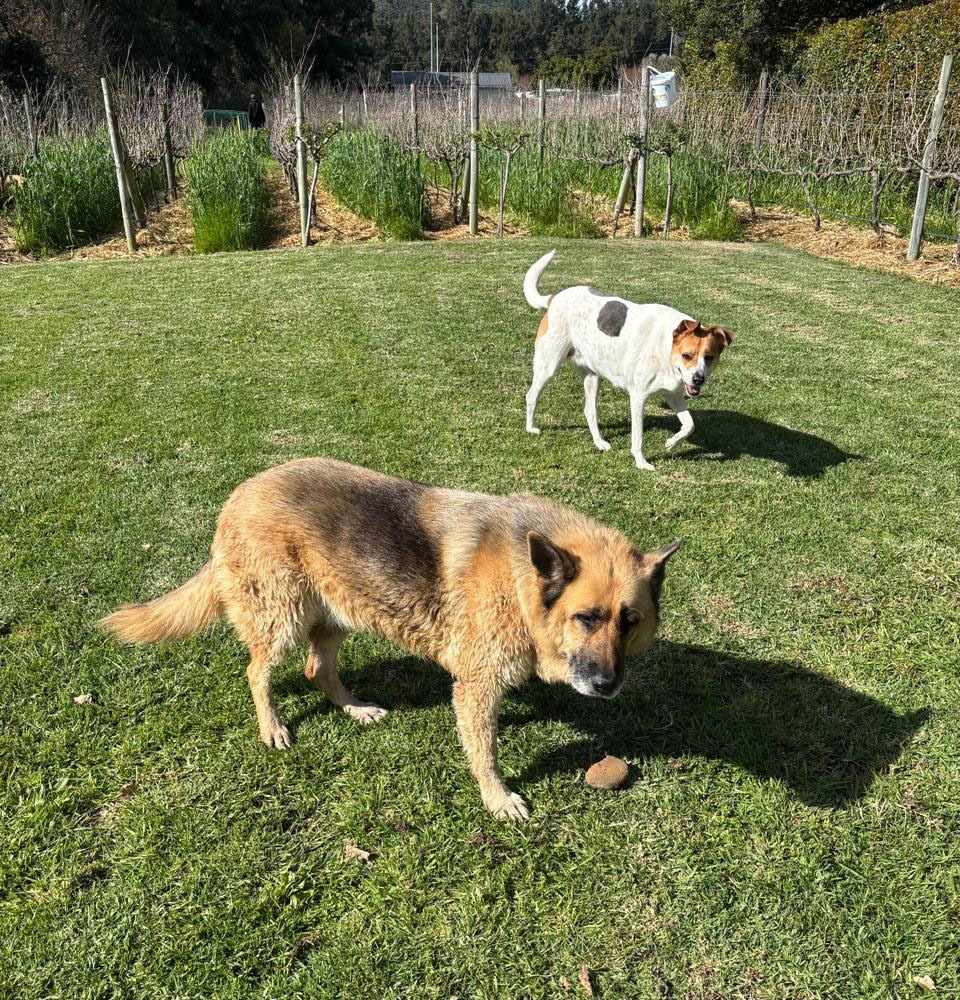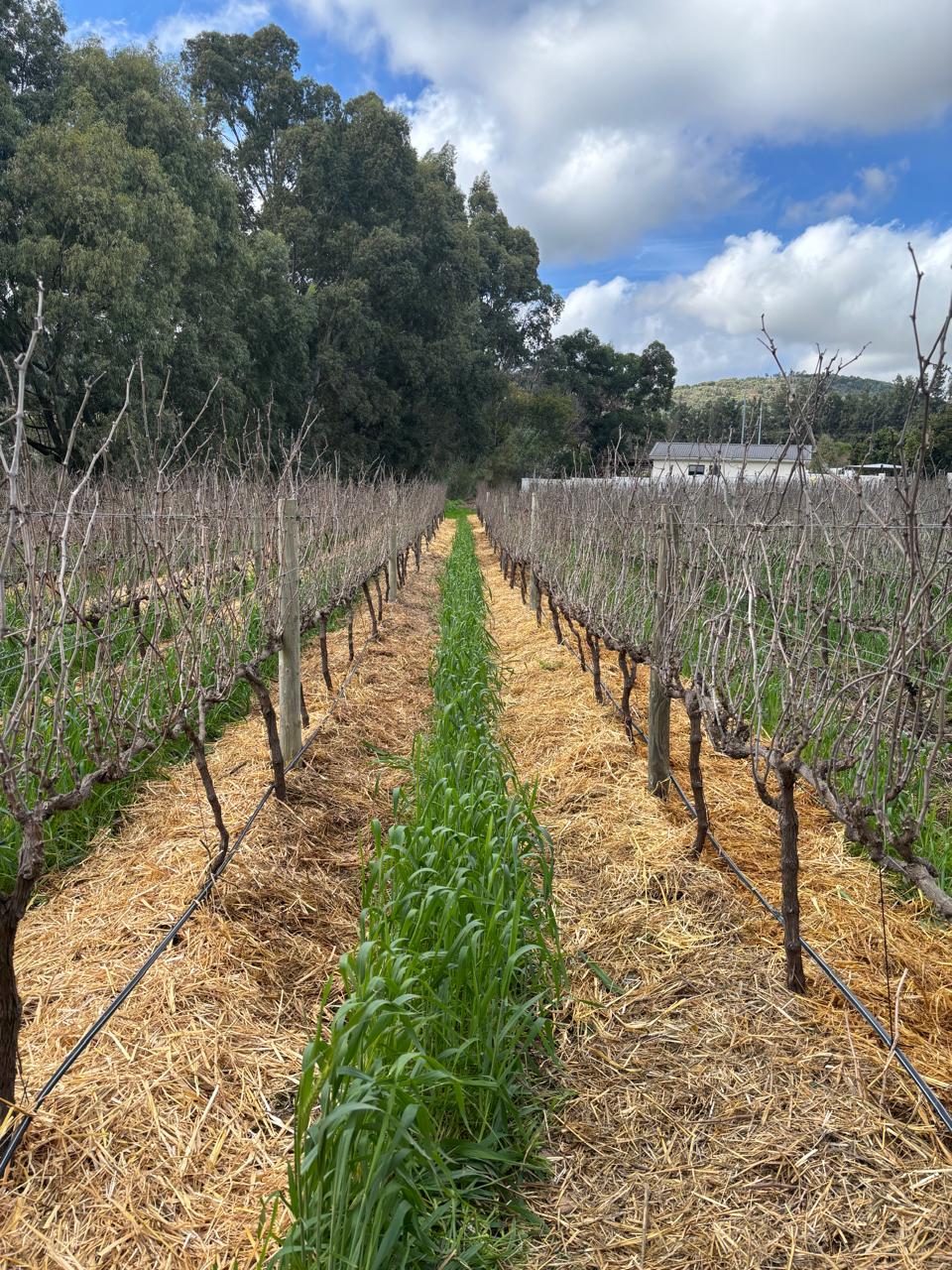As the days grow shorter and the chill creeps in under my paws, I can feel the vineyard slowing down, just like me. Autumn is almost over, and winter is on its way. My coat is getting thicker now, a soft, warm shield that grows in with every cooler morning. The smells are changing too. Earthier, quieter, like the land is taking a deep breath before a long nap.

Image of Sam and Nibby checking out the vines. As always, Sam has her trusty rock.
Here at Long Dog Farm, everything is done by hand – and paw. It means the work takes longer, but it feels more personal. I walk every row with care, my nose low, tail high, checking in on each vine like an old friend. I’ve come to know their moods, their needs, their quiet shifts as the season turns.
This year, I made sure they got one last long drink, deep watering before the winter rains take over. It’s a bit of a gamble, trusting the skies to do their part, but I’ve seen how much it helps. The vines settle in more gently, their roots stretching down into the damp soil, ready for rest. I know the feeling. As the wind picks up and the air bites a little more each day, I find myself curling up sooner, sleeping longer, and dreaming of spring.
To support them through winter, I’ve also added LAN, a light nitrogen feed to help the soil replenish what was taken during the growing season. It’ll break down slowly over the colder months, ready to nourish the vines when they start waking up again in spring.
We’ve started laying hay along the vine banks, something I’ve come to appreciate more and more over the years. It keeps the soil warm, holds in moisture, and slowly enriches the earth as it decomposes. But just as importantly, it creates a safe home for beneficial insects. A thriving insect population means fewer problems down the line, and it’s always been my belief that a vineyard’s health starts below the surface.
This is also the perfect time to do a deep clean. We’re pulling out weeds by hand, giving the soil a chance to breathe, and spreading mulch where it’s needed most. With the canopy thinning out, I’m able to walk the rows and check the trellis lines and wires. It’s the kind of maintenance that saves a lot of frustration come spring.

Banks covered in hay and the korog looking great.
Before the pruning begins in earnest, I’ve made sure every tool is cleaned, sharpened, and oiled. When your work is as hands-on as ours, having tools in top shape isn’t just practical, it’s respectful to the vines.
Earlier this season, we also planted our winter cover crop, korog – between the rows. It’s already starting to come up, and I love seeing that soft green carpet stretch across the vineyard. Not only will it help prevent erosion during heavy rains, but it’ll also add organic matter to the soil and improve structure. At Long Dog Farm, we try to let nature do as much of the work as possible, and the korog is already doing its part.
Winter is quieter, but never still. While the vines rest above ground, the real work of renewal happens beneath the surface. I take this time to reflect, to note what worked this year and what didn’t. Each season teaches me something new, and these cooler months offer space to listen and plan.
There’s a special kind of quiet that settles over the vineyard in winter. The buzz of summer is long gone, replaced by stillness and soft ground under my paws. It’s not just about getting ready for the next harvest. It’s about respecting the land, the rhythm of things, and the steady work that carries us all through the seasons.
From my favourite sunny patch by the barn here at Long Dog Farm to wherever you are, I hope your winter prep is going smoothly. May your vines rest well, and may your paws stay warm.
– Sam

